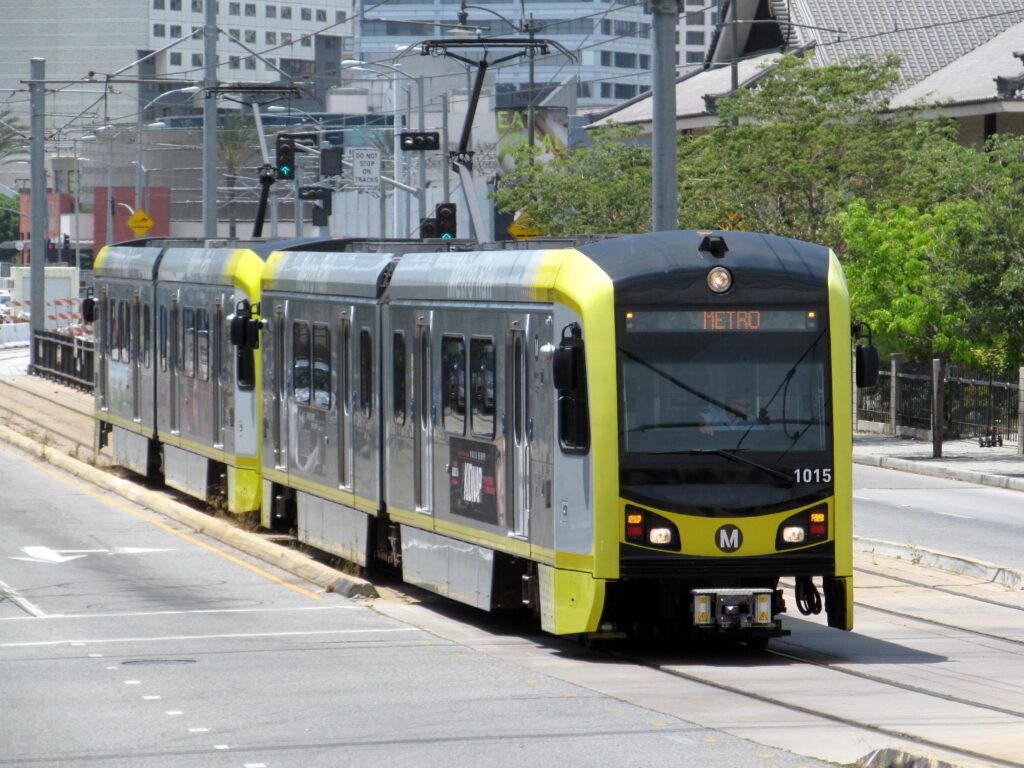FG to Launch Light Train Projects in Northern Nigeria, Kicking Off with Kano and Kaduna
In a significant development aimed at enhancing transportation infrastructure in Nigeria’s northern region, the Federal Government has announced the commencement of light train projects, beginning with the cities of Kano and Kaduna. This initiative seeks to modernize rail transport, reduce traffic congestion, and promote economic growth by providing efficient and reliable transit options for residents and businesses. The decision underscores the government’s commitment to improving transportation networks in the north, an area that has long been underserved in terms of infrastructural advancement. As detailed plans unfold, stakeholders and citizens alike are watching closely, anticipating the potential impacts on regional connectivity and development.
Federal Government Launches Ambitious Light Train Initiative in Northern Nigeria
The Federal Government has taken a significant step towards enhancing transportation infrastructure in Northern Nigeria with the launch of its light train initiative. This ambitious project aims to modernize rail transport and improve connectivity across key northern cities, starting with the bustling metropolitan areas of Kano and Kaduna. By focusing on these strategic locations, the government hopes to boost trade, facilitate movement, and provide residents with a reliable alternative to road travel. The initiative is expected to create job opportunities and stimulate economic development in the region.
Key features of the project include:
- Reduce travel time: The light train is designed to cut down the duration of long commutes, making it easier for residents to navigate daily routes.
- Environmentally friendly: The initiative emphasizes the use of cleaner energy sources and technologies to mitigate the environmental impact of transportation.
- Increased safety: The new rail system aims to provide a safer mode of transport compared to overcrowded road systems.
To gauge public interest and potential ridership, the government has conducted preliminary surveys and community engagements, informing their strategy as they move forward. The administration is optimistic that the success of this initial phase will pave the way for expansion into other northern states, thereby creating a cohesive and responsive rail network.
Kano and Kaduna Selected as Initial Hubs for Enhanced Transportation Connectivity
The Federal Government has officially chosen Kano and Kaduna as the pioneering cities for a new light train initiative aimed at bolstering transportation efficiency in northern Nigeria. This development is expected to revolutionize the way residents and visitors navigate the region, fostering economic growth and accessibility. The light rail network is designed to connect key urban areas, subsequently reducing travel times and alleviating congestion on existing roadways.
Key features of the light train project include:
- Enhanced commuter experience: The trains will provide a comfortable and reliable mode of transport for thousands of daily commuters.
- Environmental benefits: A shift towards rail transport is expected to lower carbon emissions and promote sustainable urban development.
- Economic opportunities: The project will create jobs during the construction phase and stimulate local economies through improved access to services and markets.
To further illustrate the project’s potential impact, a comparison of current transportation methods and the expected benefits of the light train system is outlined in the table below:
| Transport Mode | Current Challenges | Expected Improvements with Light Train |
|---|---|---|
| Road Transport | Traffic Congestion, High Emissions | Reduced Travel Time, Lower Emissions |
| Motorcycles | Safety Concerns, Limited Capacity | Increased Safety, Higher Capacity |
| Buses | Inconsistent Schedules, Overcrowding | Reliable Services, Comfort |
Strategic Implications and Recommendations for the Successful Implementation of the Light Train Project
The successful implementation of the light train project in northern Nigeria requires a comprehensive strategy that focuses on infrastructure development, community engagement, and sustainable financing. Key stakeholders, including government agencies, private investors, and local communities, must collaborate to ensure clear communication and alignment of goals. This collaboration should foster an understanding of the project’s benefits, which include enhanced mobility, reduced congestion, and economic growth. Engaging with local populations through town hall meetings and information campaigns will be essential to addressing concerns and promoting collective ownership of the project.
Moreover, it is crucial to adopt a phased approach to project rollout that allows for iterative learning and adaptation based on feedback. The planning and design phases should include robust environmental assessments and risk management strategies to mitigate potential challenges. Additionally, establishing financing mechanisms that leverage public-private partnerships can help secure funding and technical expertise necessary for the project’s long-term success. A well-structured implementation timeline, coupled with ongoing monitoring and evaluation, will ensure that the project remains on track and meets its objectives effectively.
Closing Remarks
In conclusion, the Federal Government’s initiative to launch light train projects in northern Nigeria marks a significant step towards enhancing transportation infrastructure and economic development in the region. By starting with the cities of Kano and Kaduna, the government aims to facilitate better connectivity, ease congestion, and promote commerce across northern states. As policymakers and stakeholders closely monitor the implementation of this project, the successful execution could serve as a blueprint for future transportation endeavors in Nigeria. The nation awaits with anticipation the positive changes these developments are expected to bring to the lives of millions, bolstering both local economies and the broader national landscape.
